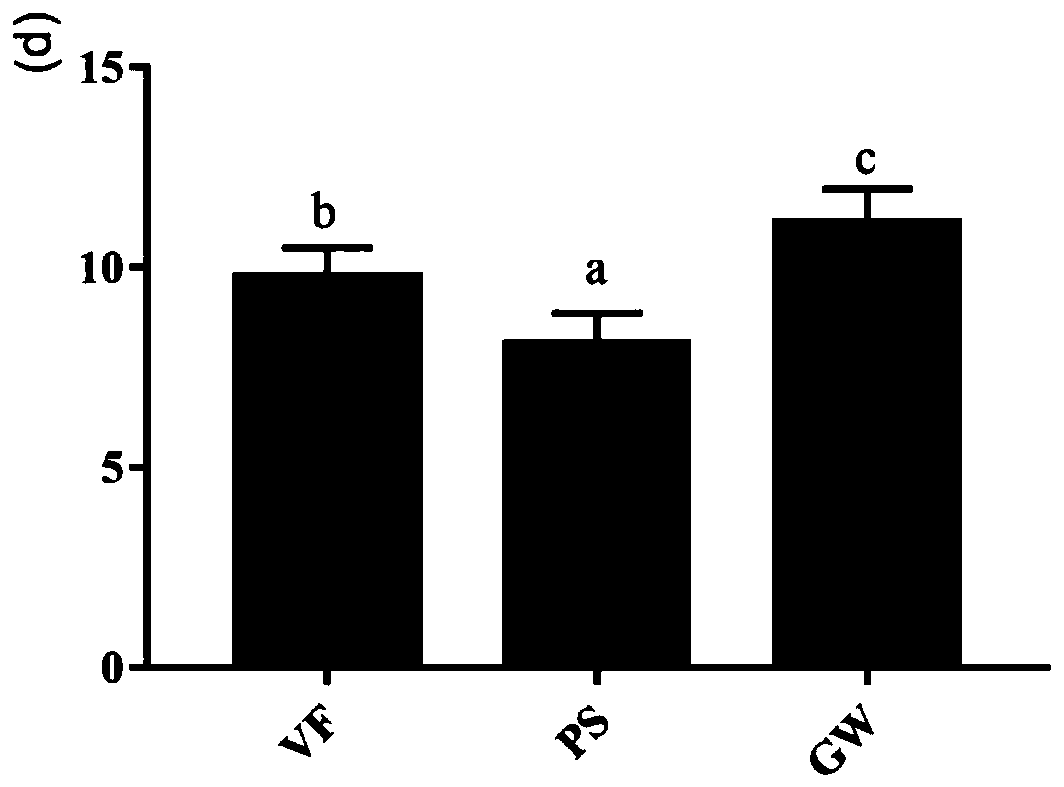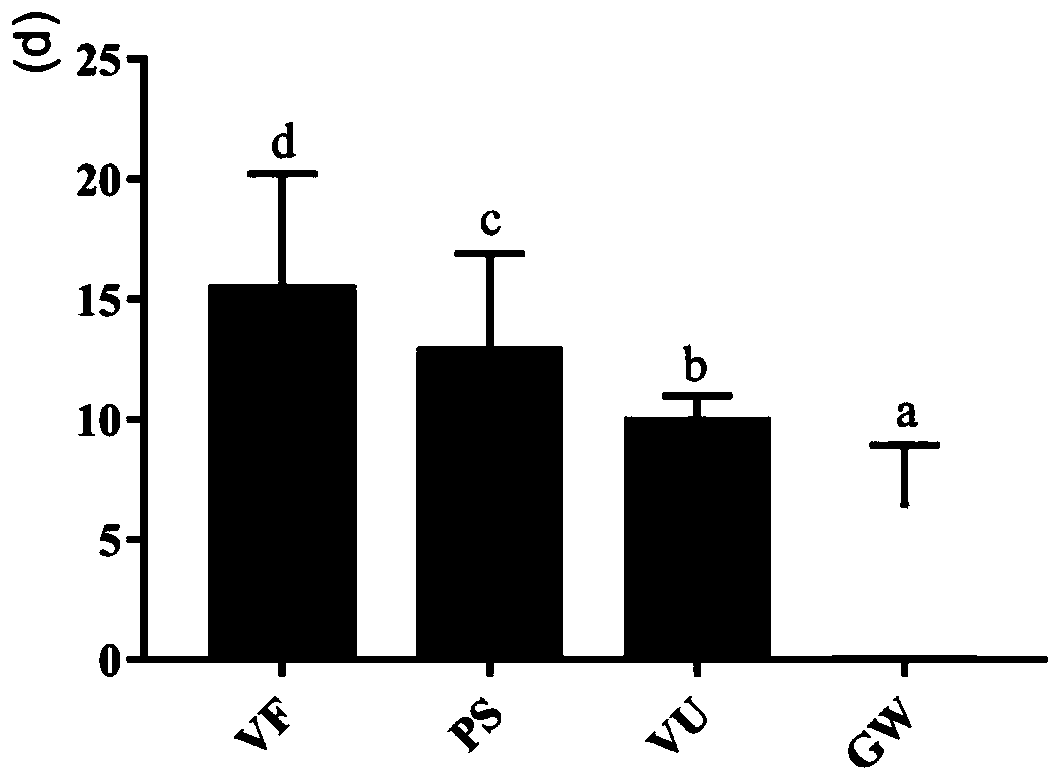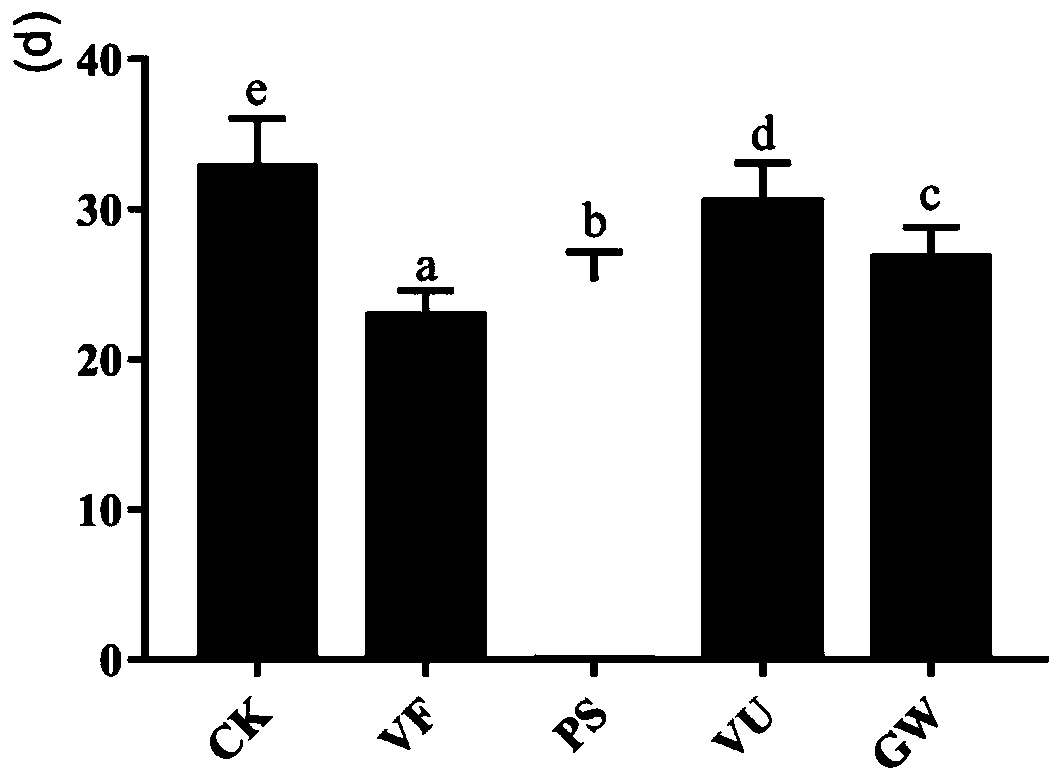A method of adding alternative host plants to improve the feeding effect of stinkbugs
A host plant, a technology to replace the host, applied in the field of insects, to achieve the effect of prolonging the use time, solving seasonality, and improving the feeding effect
- Summary
- Abstract
- Description
- Claims
- Application Information
AI Technical Summary
Problems solved by technology
Method used
Image
Examples
Embodiment 1
[0038] Plant broad bean seedlings with planting pots and vermiculite in the laboratory, cut off the broad bean seedlings when they grow to 10-15cm, and let them dry in a ventilated environment for 15-20 minutes to dry the liquid at the cutting edge of the plant, then place the broad bean seedlings in clean water for a while. Cultivate a spare.
[0039] Put the egg-laying medium of the newly produced stinkbug eggs downward and the eggs face up, and collect the newly produced stinkbug eggs into a 12cm sterilized petri dish with wet filter paper built in the petri dish, and place the petri dish containing the stinkbug eggs on the Temperature 26 ± 1 ℃, 65 ± 5% RH, 16:8 (L: D) conditions of artificial climate box culture, add distilled water to the petri dish every day until the stink bug eggs hatch; transfer the newly hatched stink bug nymphs to 300ml Add an appropriate amount of distilled water to the cotton on the wet absorbent cotton block of the hard plastic aviation cup every...
Embodiment 2
[0041] Plant pea seedlings with planting pots and vermiculite in the laboratory. Cut off the pea seedlings when they grow to 10-15cm, and let them dry in a ventilated environment for 15-20 minutes. Cultivate a spare.
[0042] Collect the newly laid stinkbug eggs into a 12cm sterilized petri dish, with the egg-laying medium facing down and the egg surface facing up, with wet filter paper built into the petri dish, and placing the petri dish containing the stinkbug eggs at a temperature of 26±1°C. 65 ± 5% RH, 16:8 (L: D) conditions of artificial climate box culture, add distilled water to the petri dish every day until the stinkbug eggs hatch; transfer the newly hatched stinkbug nymphs to the 300ml hard plastic aviation cup Add appropriate amount of distilled water to the cotton every day on the wet absorbent cotton block, until the gnat stink molt reaches 2 instars. Wrap the base of pea shoots (PS) (groups of 2-3 roots) with wet absorbent cotton to prevent the host plant from ...
PUM
 Login to View More
Login to View More Abstract
Description
Claims
Application Information
 Login to View More
Login to View More - R&D
- Intellectual Property
- Life Sciences
- Materials
- Tech Scout
- Unparalleled Data Quality
- Higher Quality Content
- 60% Fewer Hallucinations
Browse by: Latest US Patents, China's latest patents, Technical Efficacy Thesaurus, Application Domain, Technology Topic, Popular Technical Reports.
© 2025 PatSnap. All rights reserved.Legal|Privacy policy|Modern Slavery Act Transparency Statement|Sitemap|About US| Contact US: help@patsnap.com



